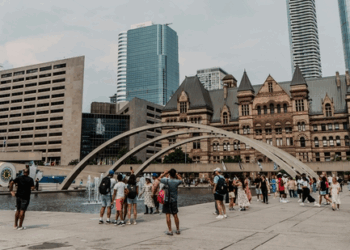The survey, conducted in Varanasi, reportedly reveals evidence that a mosque in the city stands on the remains of what Hindu petitioners assert was once a Hindu temple. The findings have prompted a resurgence of historical and religious debates, with implications for both communal relations and the cultural fabric of the region.
The Hindu petitioners argue that the mosque, known as Gyanvapi Masjid, was constructed in the 17th century after the destruction of a pre-existing Hindu temple. They contend that the survey findings provide historical backing to their claims, reigniting a long-standing dispute over the religious and cultural heritage of the site.
Varanasi, one of the oldest continuously inhabited cities in the world, holds immense religious and cultural significance for Hindus. The city, often referred to as the spiritual capital of India, is home to numerous temples and historical sites that attract pilgrims and tourists from around the globe.
The revelation has reignited concerns about the complexities of religious coexistence in India, a nation known for its diverse cultural and religious landscape. The delicate balance between different communities and their historical legacies requires careful navigation to ensure peaceful coexistence.
The survey findings may have legal ramifications, potentially leading to renewed legal battles over the ownership and status of the mosque. Additionally, the revelations are expected to have social implications, as communities grapple with the historical narratives that shape their identity and beliefs.
The government response to the survey findings is closely watched, as authorities navigate the delicate balance of preserving historical heritage while maintaining social harmony. The potential impact on religious sentiments and communal relations will likely influence the course of action taken by the government.
Amidst the rising tensions, religious leaders, scholars, and civil society groups are calling for calm and a commitment to dialogue. They emphasize the importance of fostering understanding and tolerance to address historical grievances and promote peaceful coexistence.
The survey findings add a new layer to an ongoing dispute over the religious sites in Varanasi. Efforts to find an amicable resolution that respects the sentiments of all communities involved will be crucial in maintaining harmony in the city and beyond.
The survey findings suggesting that a mosque in Varanasi was built over a Hindu temple add a contentious chapter to the complex history of religious coexistence in India. As the revelations reverberate through the cultural and political landscape, the nation grapples with the challenges of preserving historical heritage while fostering a climate of harmony and understanding.








 India
India












